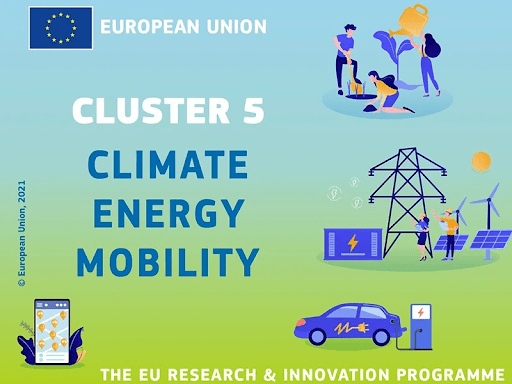The Horizon Europe grant programme is well advanced and the Commission has started the mid-term evaluation process to establish the framework’s relevance, effectiveness, coherence and EU value-added. External stakeholders have been invited to point out deficiencies and problems. The evaluation process will take until early 2024, with findings expected to flow into the programme’s successor programme. In particular the widely and highly promoted Research Missions will be scrutinised, as they have thus far shown baby-step advancements rather than the anticipated sweeping progress.
This being said, a new round of Calls within Horizon Europe has recently kicked off with a large budget envelope (>€13,5 billion) covering a wide range of Call topics. As was expected, however, the choice of Calls has been significantly influenced by the Commission’s push on the Green Deal initiative. This means that much of the available funding has been allocated to ‘Cluster 5’ of the so-called ‘Pillar 2’ within the Horizon Europe programme. The cluster targets specifically scientific collaborations whose work contributes to the achievement of green and digital transformations. It includes a wide variety of topics, among which energy resilience, new materials research and core digital technologies, but also the creation of nuclear data for predictive modelling/simulations of energy and non-energy applications, radiation protection etc. Cluster 5 is relevant for CERN because it allows the development of many new sensing tools, instruments and analytical methodologies that could potentially (also) have use in demanding basic science environments. One would only need to think of CERN’s unrivalled expertise in superconductivity in relation to power transmission cables or in electrical systems, to name but one example.
In fact, the first 15 proposals of 2023 with CERN participation (including 3 with CERN in a coordinating role) have been submitted and are awaiting their evaluation outcome in the summer.
Climate, Energy and Mobility calls, within Cluster 5, are relevant for CERN because it allows the development of many new sensing tools, instruments and analytical methodologies.
Some scientists may be reluctant to engage with Pillar 2 Calls because of the perceived bureaucratic hassle during the proposal preparation stage and in project execution. No question: EU research funding comes with a significant amount of bureaucracy. There are good reasons for that, but unless the solving of administrative and organisational problems is your favourite pastime, it can certainly be a big distraction from the actual science work. The EU Office can help by providing advice on how to maximise scientific benefits as well as increasing international networks and visibility, whilst minimising bureaucratic and administrative pressure.
The new round of Horizon Europe Calls also includes research topics specifically targeting Research Infrastructure collaborations, ERC funding for breakthrough basic science, and a new round of the Marie Skłodowska-Curie (MCSA) programme to train doctoral candidates, support the career perspectives of postdoctoral researchers and encourage collaborations between organisations through staff exchanges. If you are looking for someone to discuss your idea with, or to check suitability or positioning, then contact us at the EU Office. We will be happy to help!
